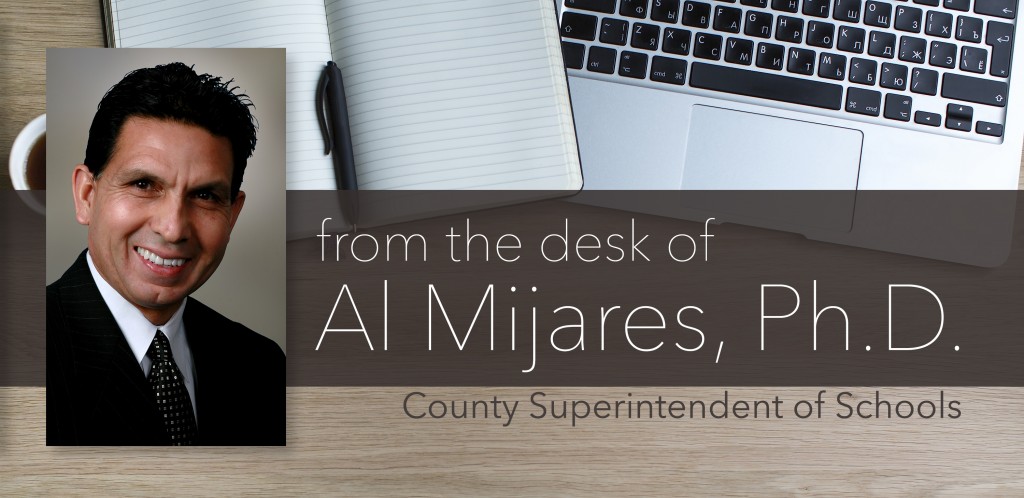Interventions for many students have historically taken the form of punitive measures, including suspensions or expulsions. But today’s educators recognize there can be more effective — and proactive — approaches.
“We focus so much on behavior modification,” says Dr. Pedro Noguera, founder for the Center for the Transformation of Schools at UCLA. “You know what we don’t focus on enough? Academic engagement. You want to raise achievement and lower discipline problems? Improve academic engagement.”
 Dr. Noguera was among several distinguished speakers who participated in a recent forum hosted by OCDE in partnership with Latino Youth Leadership Orange County to address the needs of underrepresented students, particularly young men of color.
Dr. Noguera was among several distinguished speakers who participated in a recent forum hosted by OCDE in partnership with Latino Youth Leadership Orange County to address the needs of underrepresented students, particularly young men of color.
Attended by more than 500 educational leaders, the Know My Name, Face and Story: Saving Our Most Vulnerable Boys and Young Men conference on May 2 also featured Dr. Shaun Harper, professor and executive director of the Race and Equity Center at USC, and Dr. Victor Rios, professor of sociology at UC Santa Barbara.
Their presentations contributed to a larger conversation that’s been taking place about the systemic causes of achievement gaps and the cycles of poverty and despair that have persisted for generations.
Disengagement and underachievement affect a large percentage of students across all racial and ethnic groups. But these conditions are most acute for African-American and Latino students who are more likely to be impacted by economic instability. Moreover, boys have dropped precipitously in their academic attainment when compared to girls.
It doesn’t have to be this way. Orange County educators are embracing their capacity to be change-agents and advocates for our most vulnerable populations, cultivating traits such as resilience, grit and a growth mindset. This starts with understanding the stories, needs and traumas of those who walk through our doors.
OCDE is well-positioned to support this work, as we have long prioritized accepting and educating the whole child in inclusive learning environments.
Three years ago our department was tapped by the state to help school systems implement the California Multi-Tiered System of Support framework. Based on the theme “All Means All,” MTSS aligns new and existing strategies to meet students’ academic, behavioral and social-emotional needs, providing core supports for all, additional assistance for some, and targeted interventions for those with the greatest needs.
In his presentation on May 2, Dr. Noguera offered suggestions for how to more proactively support underachieving students, including interventions at earlier ages. But he and his fellow speakers also discussed shifting our perspectives to see the strengths of all students rather than their deficits.
“The future of this country is going to be determined by what happens in its schools,” he said. “I’ve been doing this work for over 30 years now. I’m still optimistic about the possibilities. I’m optimistic because I get to see places where good work is happening.”
Orange County schools are doing exceptional work promoting the five Cs of critical thinking, communication, collaboration, creativity and character, which are essential building-blocks for increasingly complex educational systems and careers. But these lessons must be part of a larger framework that helps educators understand the unique needs of each student, including past traumas and present realities.
Through MTSS and the many training opportunities offered by OCDE, we are striving to equip educators at all levels with best practices and effective strategies that underscore our collective commitment to teaching students, rather than subjects.
